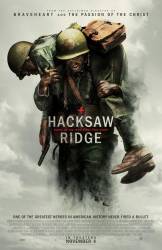Question: How did they attack in the morning and fight a 2 hour battle and dig in for the night?
Question: Seconds before the first battle started, one soldier had jumped up and started screaming when the other soldier approached him just before they both were killed. What was that about?
Question: Considering how those of Desmond's unit who beat him up got away with it, what would their punishment have been had they been revealed? What was the military's policy on recruits physically assaulting other recruits? Would they have been punished, or would those in authority have looked the other way?
Question: In the first combat scene, we see the big climbing net already in place. Who put the net up in the first place and how would that have been done? And why would the Japanese not simply cut it down after the first fights when the US troops retreated?
Question: Did drill sergeants typically fight with their platoons in WWII?
Answer: No.
Question: Why did the Japanese man at the end kill himself?
Chosen answer: Japan's culture is complex and has a long history of ritual suicide ingrained within it. For Japanese, this practice was often expected of someone who had somehow failed, shamed, or otherwise dishonored themselves, their family, their country, and so on. Historically, suicide was also committed by servants after their master died, by Samurai widows, or when people were defeated by their enemies. At the end of WWII, many Japanese soldiers and civilians committed suicide rather than surrender.
Question: Why did Desmond's father show up to the hearing in his Great War uniform instead of a suit and tie?
Question: Why didn't the Japanese just cut the rope net off the cliff side to prevent the Americans from climbing up and attacking? Common sense would have been to inhibit their advance any way they could.
Answer: I'd classify it as a deliberate mistake or choice on the moviemakers' part. It fit the plot to have it play out that way and have the Japanese being attacked.
A deliberate mistake is something like using an 8-month-old baby as a newborn, something done intentionally for filming purposes. Writing in a plot contrivance isn't a deliberate mistake. At best, it could be considered a character mistake if it's something a real person would do in the character's position or a stupidity, a stupid act by a character for the sake of the plot.
It was a plot mechanic. Unfortunately, resulting in a massive, obvious plot hole.
Question: What was the point of court martialling Doss? They said he couldn't go to war if he didn't use a gun, and they gave him the option to quit. So why wouldn't they just kick him out?
Answer: Doss faced a court-martial because he refused the direct order of handling a rifle from camp commander Colonel Sangston. If the Army simply kicked him out, it could inspire other men to follow in his footsteps and refuse to carry a rifle. While Doss could not live with that shame, it can be assumed many others would not have that same problem.






Chosen answer: US troops put the net up (in reality the ridge isn't as tall). The Japanese were fighting a defensive battle from heavily fortified positions on a reverse slope, and it suited them to have the Americans attacking from that point. The Americans also used ladders on other parts of the escarpment.